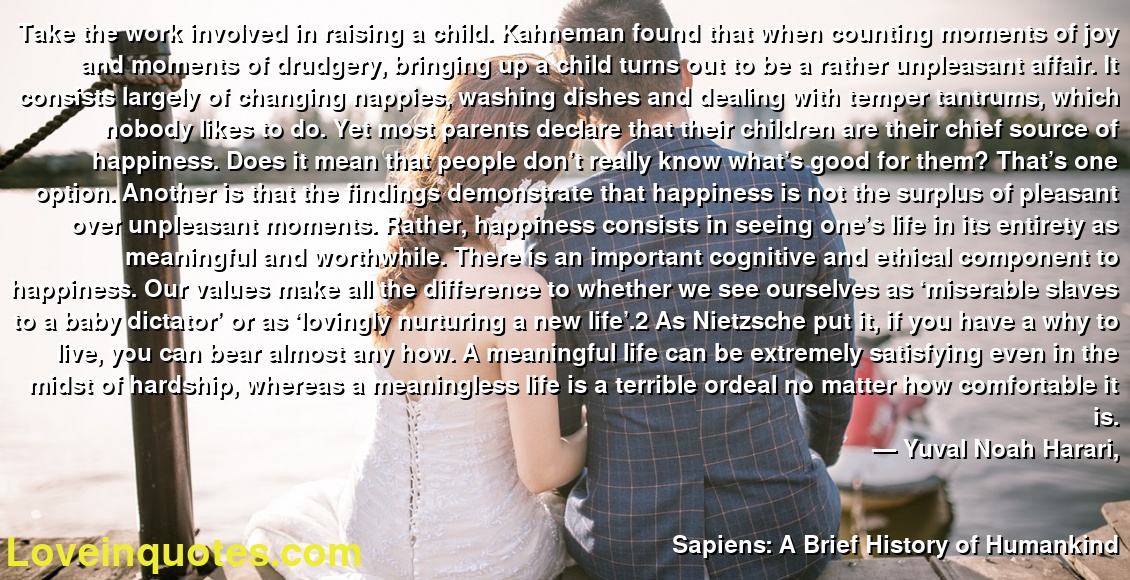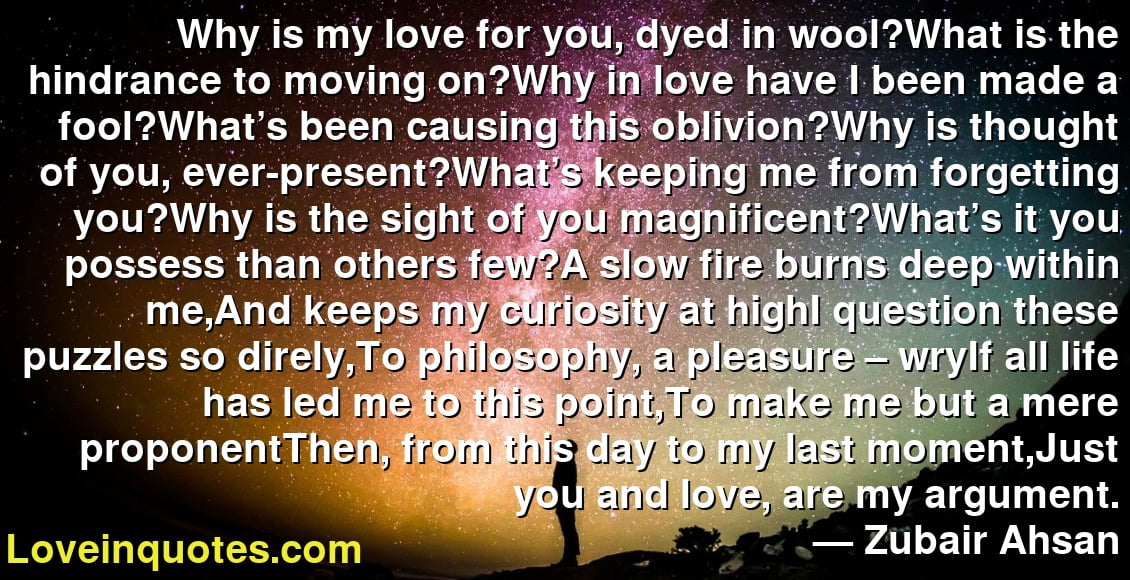
Take the work involved in raising a child. Kahneman found that when counting moments of joy and moments of drudgery, bringing up a child turns out to be a rather unpleasant affair. It consists largely of changing nappies, washing dishes and dealing with temper tantrums, which nobody likes to do. Yet most parents declare that their children are their chief source of happiness. Does it mean that people don’t really know what’s good for them? That’s one option. Another is that the findings demonstrate that happiness is not the surplus of pleasant over unpleasant moments. Rather, happiness consists in seeing one’s life in its entirety as meaningful and worthwhile. There is an important cognitive and ethical component to happiness. Our values make all the difference to whether we see ourselves as ‘miserable slaves to a baby dictator’ or as ‘lovingly nurturing a new life’.2 As Nietzsche put it, if you have a why to live, you can bear almost any how. A meaningful life can be extremely satisfying even in the midst of hardship, whereas a meaningless life is a terrible ordeal no matter how comfortable it is.
― Yuval Noah Harari,
Sapiens: A Brief History of Humankind
Like Yuval Noah Harari?
Buy Yuval Noah Harari products
[easyazon_link keywords=”Yuval Noah Harari” locale=”US” tag=”bestsellerlisting-20″] [/easyazon_link]
[/easyazon_link]
Do you Like Positive words, poetry and words to describe someone you love?
Check out
| https://positivewordsdictionary.com/ |
| https://wordsthatrhymewith.com/ |
| https://wordstodescribesomeone.com/ |




![Love doesn’t need consent or someone’s approval. It is as inevitable as life and death.
― Samreen Ahsan,
Once Upon A [Stolen] Time Love doesn’t need consent or someone’s approval. It is as inevitable as life and death.
― Samreen Ahsan,
Once Upon A [Stolen] Time](https://loveinquotes.com/wp-content/uploads/2021/05/love-doesnt-need-consent-or-someones-approval-it-is-as-inevitable-as-life-and-death-e28095-samreen-a.jpg)


